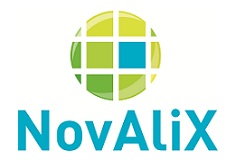|
Company Workshops will be organised during the lunch breaks on Monday, September 3 and on Tuesday, September 4. Duration: 90-minutes Workshop.

ACCELRYS WORKSHOP: New Computational Methods for Fragment Based Lead Discovery
Presenter: Dr Tien Luu
When? Monday, September 3 | 12:15 - 13:45
Fragment Based Drug Design (FBDD) has developed significantly over the past decade and is now widely accepted as a viable method of hit identification and lead optimisation. The smaller size of fragments (molecular weight < 250 Da) allows a smaller sample of library compounds to sample a large chemical space and provide higher hit rates than screening of larger compound libraries. Ideally, each lead generated from FBDD should fit into the binding site, be chemically tractable, and have good binding affinity/specificity to the protein. In this talk, we present some new, easy to use computational methods for fragment based lead discovery supporting the typical workflow:
1. PLACE – place an initial fragment in the correct binding position and orientation to the protein binding
2. GROW – grow the fragment by chemical functionalization with in situ reactions, taking into account the protein environment
3. REPLACE – replace portions of the lead molecules to generate more ideas
A number of examples will be presented to demonstrate these methods, illustrating the use of common chemical reactions to ensure that the generated leads are chemically tractable, the ability to allow specific interactions with protein side-chains, inclusion of full implicit-solvent-based energy simulations and even selective flexibility of protein residue side-chains.
Interested participants should sign up directly with adele.willacy@accelrys.com

NOVALIX WORKSHOP: Biophysical Techniques in Drug Discovery
Presenters: Thomas Neumann, Jean-Paul Renaud, Luc Van Hijfte
When? Tuesday, September 4 | 12:15 - 13:45
This workshop will review the use of biophysical techniques for hit generation and characterization. It will be illustrated through 3 lectures :
-
Fragment-based screening techniques with a focus on high-throughput SPR imaging involving microarrays of immobilized ligands - advantages over the standard approach involving immobilized proteins;
-
Supramolecular mass spectrometry and its versatile use for the thorough characterization of purified proteins, for secondary screening, and for the high-content characterization of protein-ligand interactions;
-
Examples of integrated drug discovery project combining various biophysical techniques and medicinal chemistry.
| 
